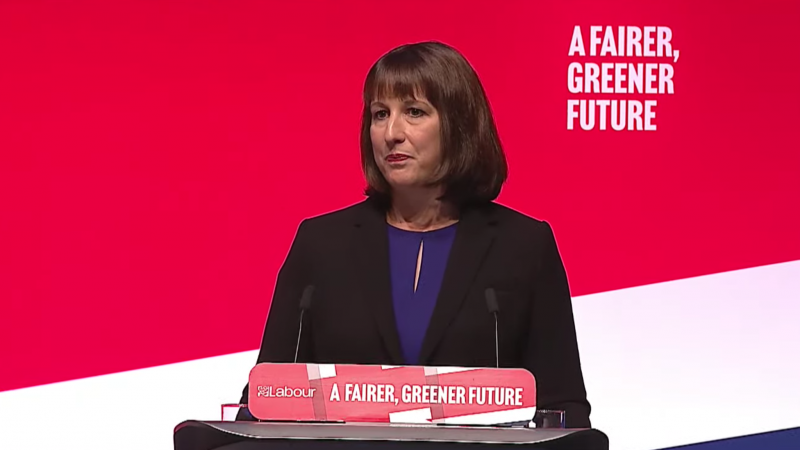Postman Pep
Well-Known Member
- Joined
- 10 Aug 2018
- Messages
- 5,692
Buyers remorse
Do tell me more about how much more efficiently and effectively things are run when under public sector control.What the liberal left also said is that selling off public services, assets and council houses for a quick buck to a load of rich companies will lead to massive problems over cost control problems in the future. Well guess what, we're now in the future and we've got massive cost control problems. The issue is how the hell can you correct these past terrible self-infliction wounds when you haven't got a pot to piss in is almost impossible. It's going to take decades to fix

Do tell me more about how much more efficiently and effectively things are run when under public sector control.
Literally just a drop in the ocean in terms of local government waste, incompetence and inefficiency but I think you get my point...
View attachment 130885
It’s not happening. People riot when someone looks a bit Muslim commits a crime.
I’ve no idea how to stop people demonising an entire religion. If I did, I would.
As you suggest, the outcome is going to be based on the attitude of the individual. As it currently stands, we’re closer to civil war than Sharia Law due to peoples’ misconceptions, prejudices, ignorance and intolerance.
I see no one has interacted with Zen’s posts. That doesn’t surprise me.
It was the council that identified the building as required for their needs and signed off on the very long lease.Did you know that most mergers aren't successful?
So why do big companies still persist with it?
Seems wasteful.
Why are you using an example of a privately owned company leasing a depot to a council?
There were two together, the second of which broke down how it’s not even Sharia law being practised here.Which one? The only one I read was pretty straightforward and didn't conflict with my posts at all .
No point going round in circles with you posting what the future uk won't look like and me saying you can't predict the future because well no one can.It’s not happening. People riot when someone looks a bit Muslim commits a crime.
I’ve no idea how to stop people demonising an entire religion. If I did, I would.
As you suggest, the outcome is going to be based on the attitude of the individual. As it currently stands, we’re closer to civil war than Sharia Law due to peoples’ misconceptions, prejudices, ignorance and intolerance.
I see no one has interacted with Zen’s posts. That doesn’t surprise me.
Dull.No point going round in circles with you posting what the future uk won't look like and me saying you can't predict the future because well no one can.
If you give me the winning lottery numbers I will concede that you are indeed the New Doctor Who:-)
It depends whether you believe that privatisation is in itself the problem. I strongly suggest that it is not. When done right, it can work extremely well.What the liberal left also said is that selling off public services, assets and council houses for a quick buck to a load of rich companies will lead to massive problems over cost control problems in the future. Well guess what, we're now in the future and we've got massive cost control problems. The issue is how the hell can you correct these past terrible self-infliction wounds when you haven't got a pot to piss in is almost impossible. It's going to take decades to fix
Buyers remorse
Clearly. This fella thought he was getting something else. Experts eh who needs em ;-)Not really.
What was on offer was eating shit or eating dirt.
Clearly. This fella thought he was getting something else. Experts eh who needs em ;-)
Agree with all of that. The privatisation of the rail network has been a lesson in how NOT to do it.I'm sorry, but my experiences with 'Cross-Country Trains' (shit) have put me off privatised trains for life. Although BR had its faults, it was cheap to travel on, the trains were rarely packed and you could buy a ticket on the day of travel without taking out a personal loan. It also had far less subsidy than the present system enjoys.
Regulators simply do not work in this country. They might work in other countries, but here they might as well be scrapped for all the good they do.
My view of rail privatisation was this. If Richard Branson wanted to run trains between London and Manchester he could have spent a few billions reopening the Great Central route and we could have enjoyed the competition. What we had instead was a farce, where public monopolies (bad enough) were changed into private monopolies (far worse) at vastly increased cost to the mugs.
A bit like the original Danny Blanchflower ...great player shit manager.Blanchflower has forgotten more about economics than I'll ever know, but if he thought Starmer and Reeves were going to do something radically different, then his political antennae is stuck up his arse.
Blanchflower has forgotten more about economics than I'll ever know, but if he thought Starmer and Reeves were going to do something radically different, then his political antennae is stuck up his arse.

 labourlist.org
labourlist.org
You keep saying this but just because it hasn't happened previously, no-one should draw any comfort from that and assume it cannot happen in the future.There are countries with far higher levels of immigration and none have introduced Sharia Law into their legal system.
Nice idea but capacity is the problem. And a comparison with the London- Paris air route is not comparing like with like as they are going from/to different airports. Competition is indeed good and hopefully should drive down prices. However there are some services and utilities that just should not be "for profit".Agree with all of that. The privatisation of the rail network has been a lesson in how NOT to do it.
First, award contracts over like 10 years, giving companies a total monopoly on the line the service being offered. Then establish a regulator that allows them inflation price increases every year for 30 years. And finally, reduce the subsidy you give them.
Honestly it would be a miracle if after all of that, the service was NOT an expensive shit rip off. What on earth do people expect?
What they SHOULD have done IMO was to allow different train companies to offer different competiing services on the same tracks. So you could think, shall I get the 08:30 Virgin train from Manchester to Euston, because they have the great comfy seats and free snacks. Or shall I go on the Cross Country 07:50 which is cheaper. Or if i go on the 08:45 I can go for free with First Group by using my loyalty points.
Look at how this has worked with airfares. Used to cost £700 to fly to Paris with BA and now you can go with Easyjet for £29, and 30 years later the BA prices have actually come down. In real terms they have dropped by 70%.
Had they done this with trains, we'd have seen services get better and better and prices come down as the companies fought for your business.
Anyway they didn't and it's shite, I agree. First step to put it right should not be to nationalise them, it should be to sack the regulator and establish a new one that demands year on year price reduction, not increases.
Sure there are. Police for example. But there are not many, IMO. I think the main reason when it does not work is because it has not been implemented correctly.However there are some services and utilities that just should not be "for profit".
